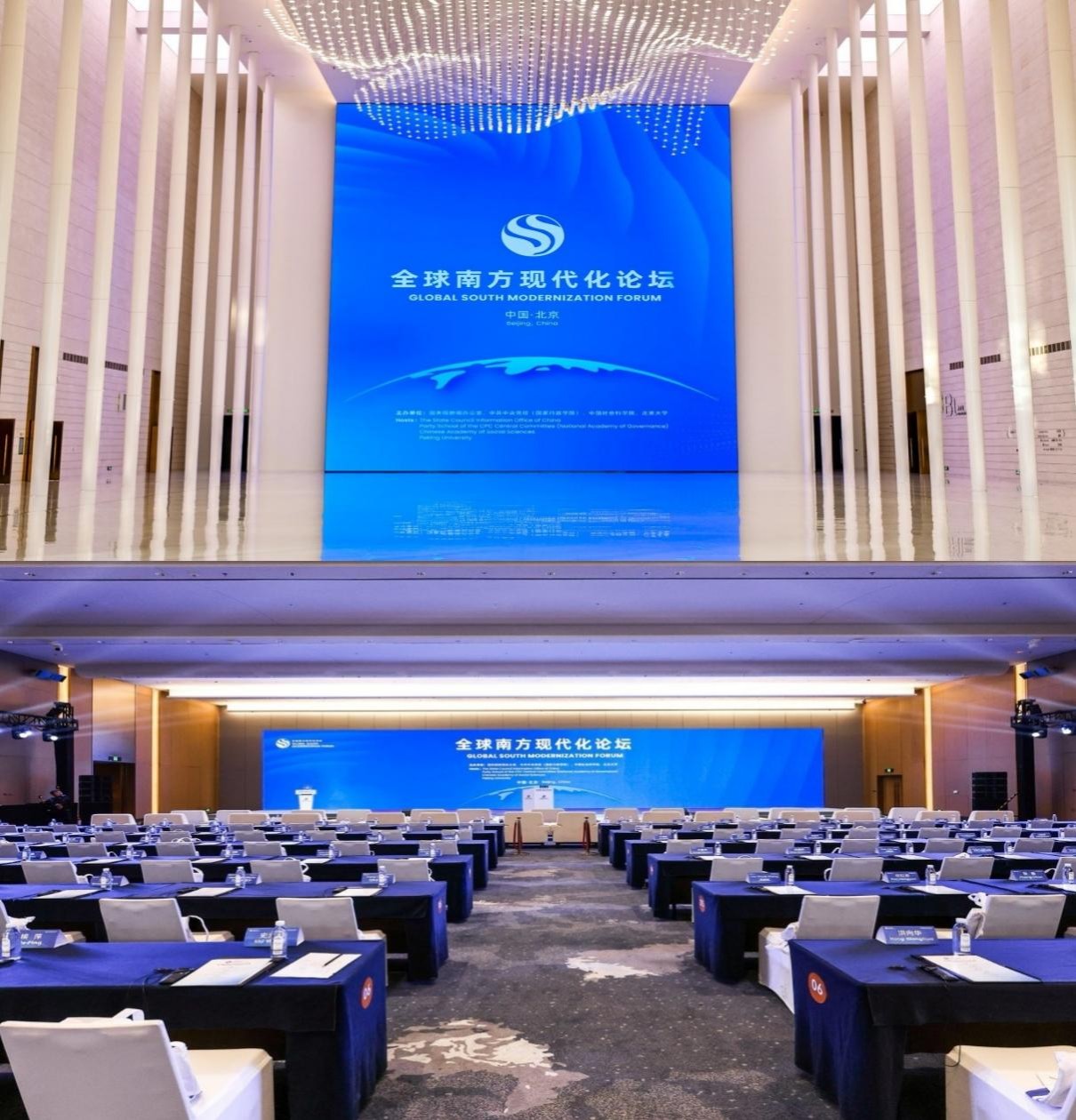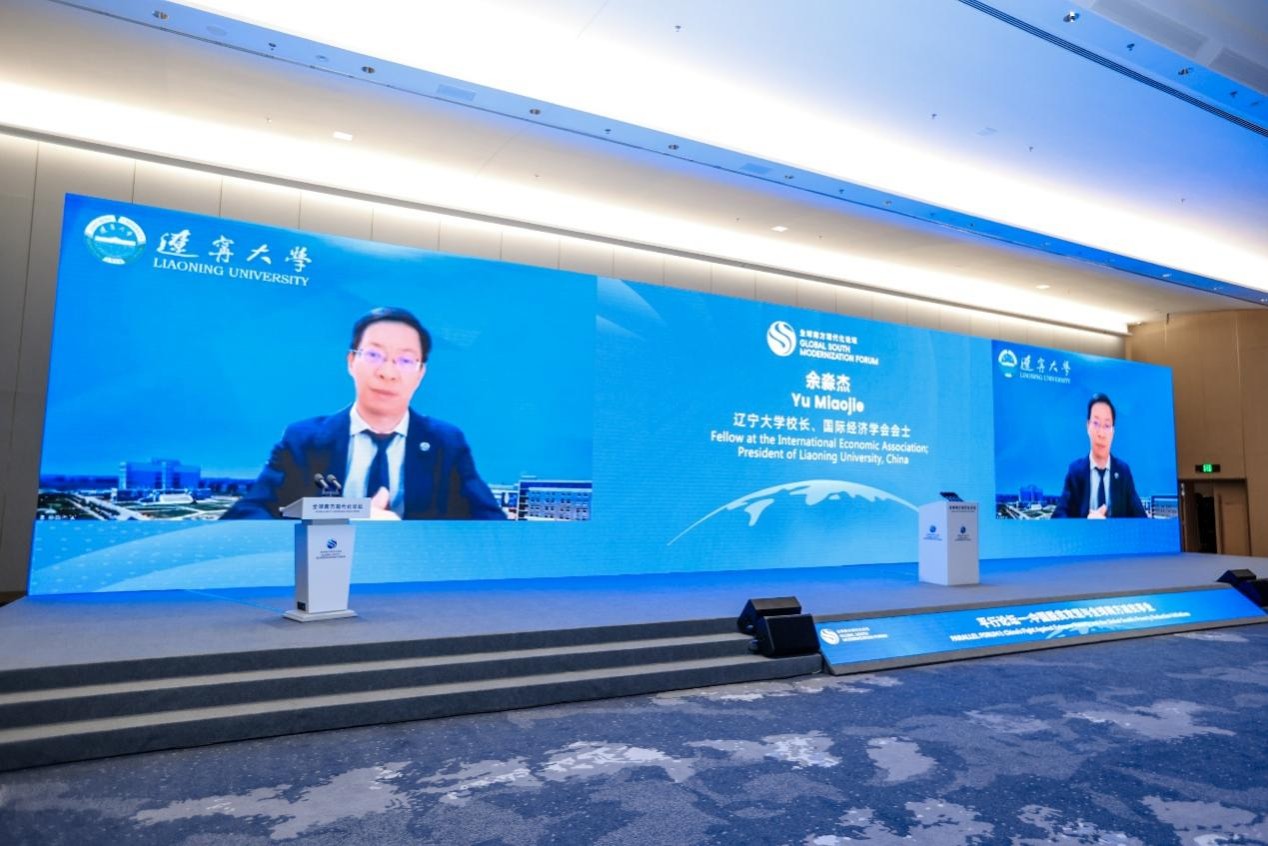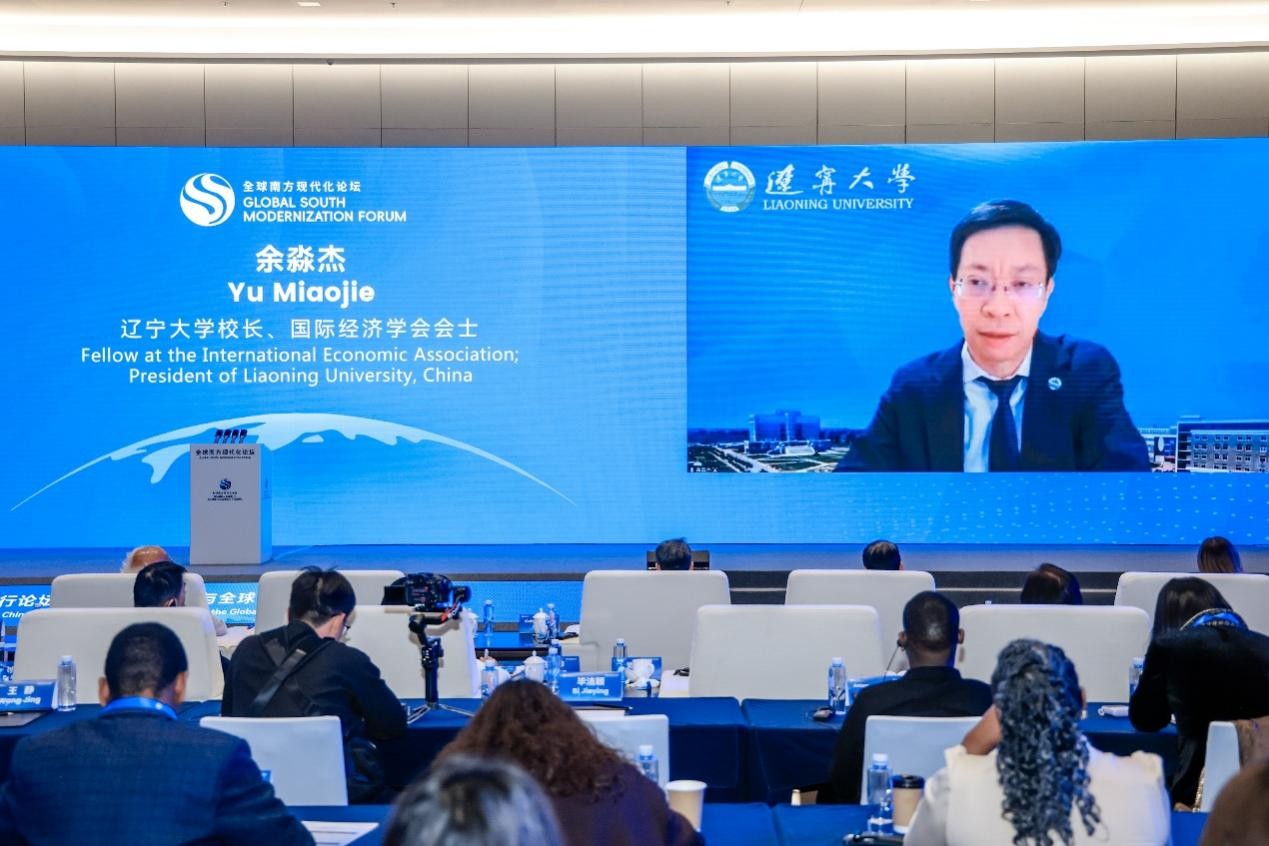Parallel Session I: China’s Poverty Alleviation and the Global South’s Path to Poverty Reduction
On November 21, Parallel Session I of the Global South Modernization Forum, themed “China’s Poverty Alleviation and Global South’s Poverty Reduction Endeavors,” took place in Beijing. The forum focused on the global significance of China’s poverty alleviation achievements, aiming to share experiences with Global South countries, build synergies, and jointly explore pathways to poverty reduction and sustainable development. The event sought to contribute wisdom and strength to building a community with a shared future for mankind, implementing the Global Development Initiative, and achieving the UN 2030 Agenda for Sustainable Development. Yu Miaojie, a deputy to the 14th National People’s Congress, Fellow of the International Economic Association (IEA), and President of Liaoning University, attended via video link and delivered a keynote speech.

Yu Miaojie first comprehensively reviewed China’s remarkable achievements in poverty reduction. He noted that in 2024, China’s GDP reached 135 trillion RMB (approximately US$19 trillion), cementing its status as the world’s second-largest economy and contributing over 30% to global economic growth. Simultaneously, China has made historic breakthroughs in poverty reduction: in 2015, the country still had over 55 million people living in poverty, but by 2021, this number had been reduced to zero, marking a comprehensive victory in the battle against poverty.

Yu Miaojie emphasized that sustained economic development is the fundamental guarantee of poverty reduction success, with the core driving force stemming from the “dual engines” of domestic reform and opening up. He pointed out that economic growth alone does not necessarily lead to poverty reduction; the key lies in achieving an organic integration of an “efficient market” and a “proactive government.” The unique advantage of the Chinese government lies in its ability to ensure policies are implemented consistently from the central leadership down to the grassroots level—a critical institutional safeguard that enabled synchronized economic growth and poverty reduction in China.
Addressing current global conditions, Professor Yu argued that despite rising uncertainty and complexity, peace and development remain the underlying trend of the times. He called for promoting “universally beneficial and inclusive economic globalization” and building an equal and orderly global governance system, a process in which the Belt and Road Initiative (BRI) plays a vital role.
Yu Miaojie further proposed five pathways for poverty reduction cooperation with Global South countries under the BRI framework: The first of these is the deepening of international trade cooperation. He specifically highlighted that platforms such as the China International Import Expo (CIIE) offer enormous market opportunities for Global South products. China’s continued expansion of imports of quality goods, alongside its provision of cost-effective industrial products to the world, helps partner countries enhance economic vitality. Secondly, strengthening two-way investment cooperation. Citing China’s new-energy vehicle industry - which holds global competitive advantages - as an example, he explained that overseas investment by Chinese enterprises not only creates jobs in host countries but also generates technology spillovers and upgrades management expertise, holding profound significance for local industrial upgrading. Thirdly, advancing infrastructure connectivity, in which Yu underscored the foundational role of physical infrastructure in improving economic operational efficiency and reducing trade costs. The fourth proposed pathway is promoting the alignment of rules and standards. He argued that the coordination and mutual recognition of rules and standards - known as “soft connectivity” - among partner countries is a crucial prerequisite for ensuring investment facilitation and deepening cooperation. Finally, focusing on improving people’s livelihoods. Yu stressed that all cooperation projects should focus on enhancing people’s actual living standards, which is the fundamental basis for winning public support for Belt and Road cooperation and achieving sustainable development.
Yu Miaojie concluded that over the past decade since its inception, the Belt and Road Initiative has become an important practical platform for promoting common development. He expressed confidence that through pragmatic cooperation in these five key areas, Global South countries can achieve higher-quality economic development and more significant poverty reduction outcomes, jointly advancing toward a fairer and more prosperous future.

The parallel forum was hosted by the Ministry of Agriculture and Rural Affairs, co-organized by the Office of the Central Financial and Economic Affairs Commission (Office of the Central Rural Work Leading Group), Renmin University of China, and East China Normal University, and undertaken by the International Poverty Reduction Center in China (IPRCC). Maierdan Mugaiti, Vice Minister of Agriculture and Rural Affairs of China, attended and delivered opening remarks. Approximately 60 representatives, including renowned experts and scholars in poverty reduction and development from China and abroad, participated and spoke at the event.
Watch the original video via the link:
https://www.bilibili.com/video/BV1VJUTBYESU?buvid=XUCBF3BC073310C0CB38A011195F72E4BC6B5&from_spmid=default-value&is_story_h5=false&mid=yjFcEUQM%2FijyxXbFdAPr8H8FTQ%2FSZMtL1rElX6M3iMo%3D&plat_id=116&share_from=ugc&share_medium=android&share_plat=android&share_session_id=7bef1de9-ff5b-4852-b8c3-76a431acb601&share_source=WEIXIN&share_tag=s_i&spmid=united.player-video-detail.0.0×tamp=1763910132&unique_k=XhxTRtP&up_id=3493145383799734
Or scan the QR code below to watch:
